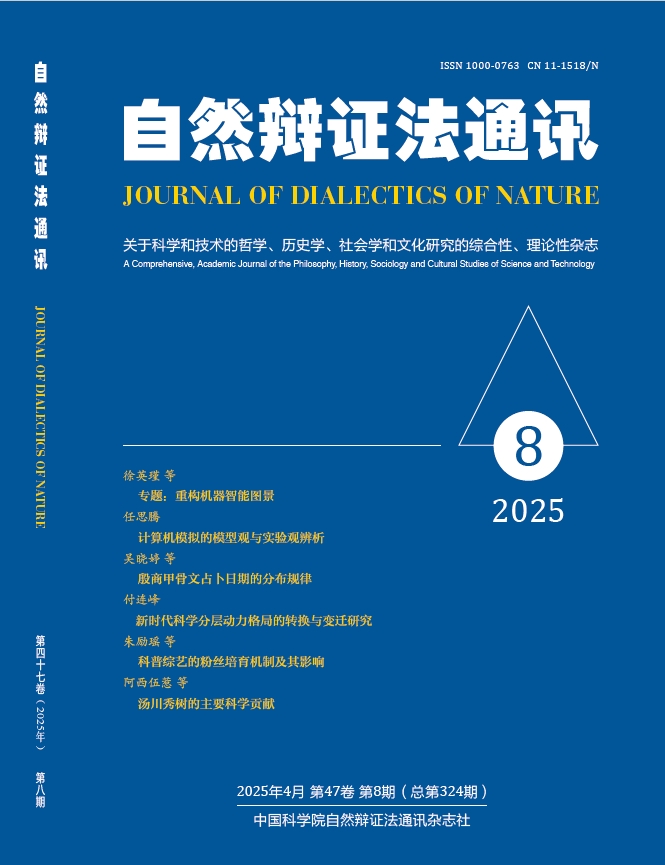JOURNAL OF DIALECTICS OF NATURE
A Comprehensive, Academic Journal of the Philosophy, History, Sociology and Cultural Studies of Science and Technology
Latest Issue


Vomule 47, Issue 8
August, 2025
Probability Theory in Tractatus
Author: SHI Weijun
Published Online: 2025.7.10
DOI: 10.15994/j.1000-0763.2025.08.005 CSTR: 32281.14.jdn.2025.08.005
Published Online: 2025.7.10
DOI: 10.15994/j.1000-0763.2025.08.005 CSTR: 32281.14.jdn.2025.08.005
Abstract: This paper delves into Wittgenstein’s Tractatus to unearth the two distinct probability notions within it: logical probability and epistemic probability. Our study yields three pivotal conclusions. Firstly, the concept of logical probability is susceptible to an axiomatic framework, but its practical utility remains restricted. Secondly, the interpretations of 5.152 pertaining to probability and independence present certain challenges for some readers. Finally, epistemic probability emerges as a logical deduction derived from hypothetically assumed natural laws, impervious to empirical validation or refutation by observed frequencies.
Key Words: Tractatus; Logical probability; Epistemic probability
JOURNAL OF DIALECTICS OF NATURE
- Contact Us
- Address: No.19A Yuquan Road, Beijing, 100049, China
- Phone: +86-10-88256007
- Email:jdn@ucas.ac.cn

Follow Us
© 2014 Copyright of the University of Chinese Academy of Sciences
© 2014 Copyright of the University of Chinese Academy of Sciences



